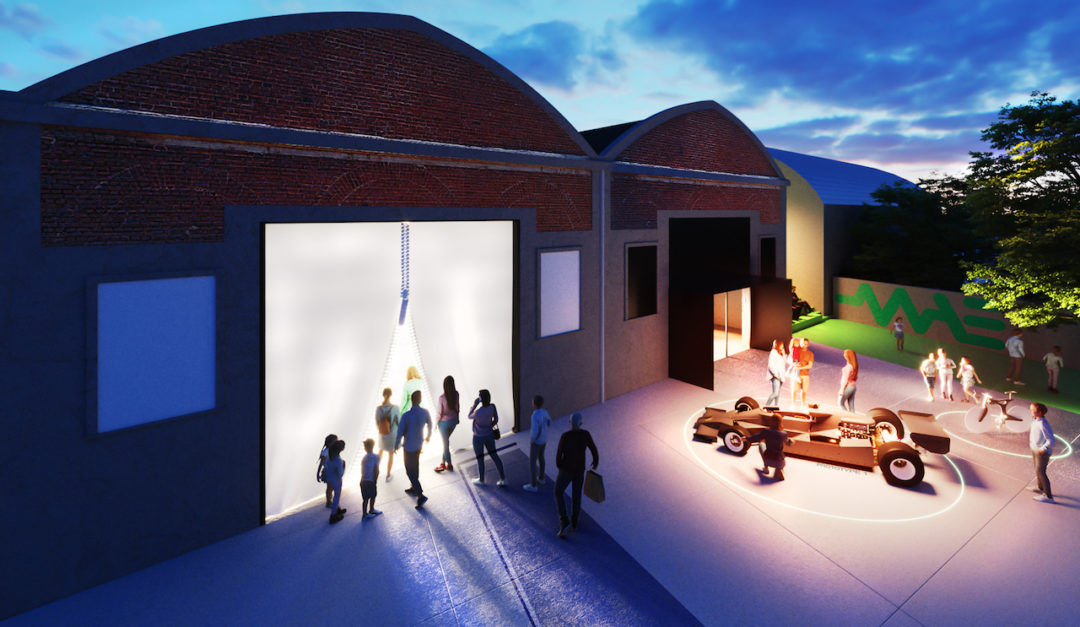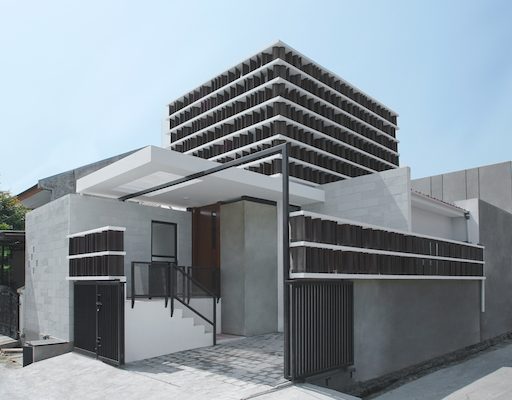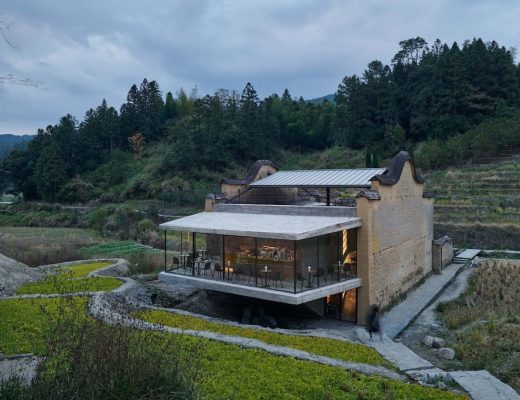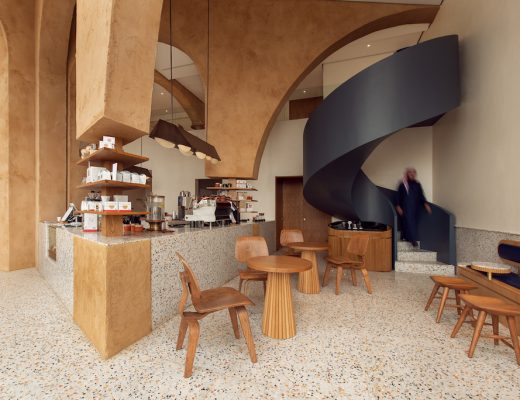A museum about carbon fibre, that is made out of it too
Carlo Ratti Associati (CRA) has joined hands with Italian designer Italo Rota to collaborate with leading manufacturing company MAE to design a museum dedicated to carbon fibre, one of the most innovative manufacturing materials today. Located in Piacenza, Italy, it will be built using recycled fibre and will showcase the material’s ecological potential and its significance as the future material of manufacturing. The museum collection illustrates how synthetic fibres are used in a variety of industries – from automotive to fashion to cycling, and employs robotics to open up MAE’s vast archives for the first time.
The museum itself will be built largely out of carbon fibre – both new and recycled – pursuing a circular approach to design. The exhibition path will employ robotics to guide visitors through the world’s largest archive of acrylic fiber technologies, documenting scientific advancements in the development of carbon fibre, as well as parallel changes in society and fashion.
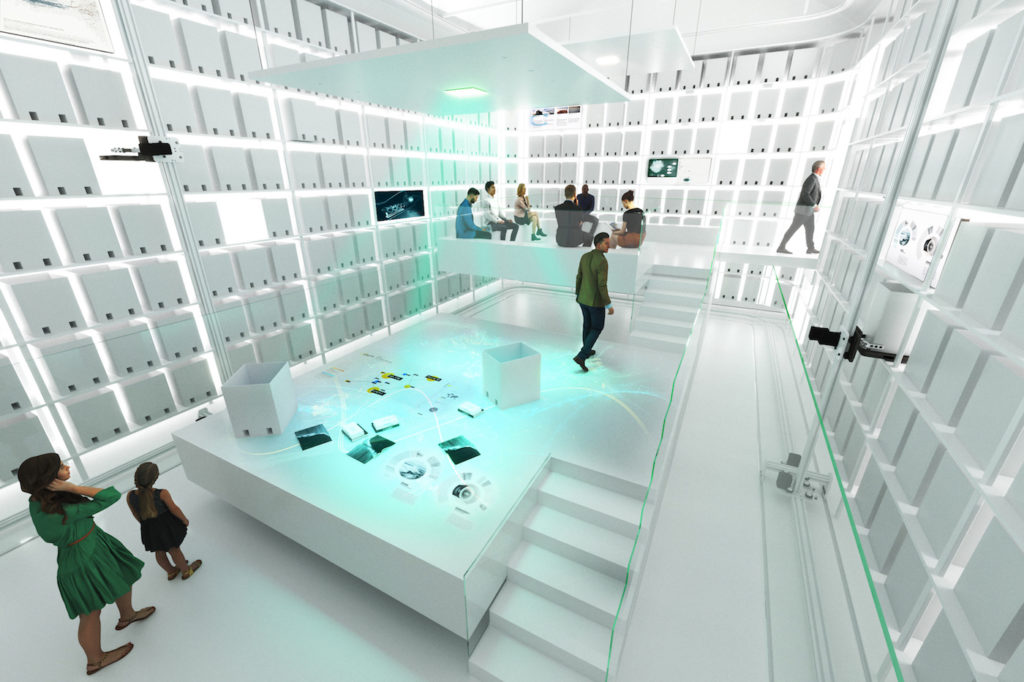
Carbon fibre is a lightweight, highly resistant material used in everything from aerospace to the automotive industry to bicycle manufacturing. It is generated from acrylic fibre, similar to the one commonly used in clothing, and then transformed into carbon fibre through a complex chemical process, where the machines of MAE are world’s leaders. Similarly, the MAE museum’s exhibition path is conceived as a twofold journey from the past into the future: from the heyday of synthetic fibres in postwar European clothing, to the latest breakthroughs in chemical and engineering research. While the museum is located inside a renovated warehouse, most interior components are built with acrylic and carbon fibre, including the entrance doors which open like a curtain.
“From high-performance bikes to the Lamborghini Aventador car, carbon fibre is driving innovation in multiple sectors. The MAE museum celebrates a defining material of modernity, by focusing on its new circular frontier and envisioning new applications for its use.”
Professor Carlo Ratti
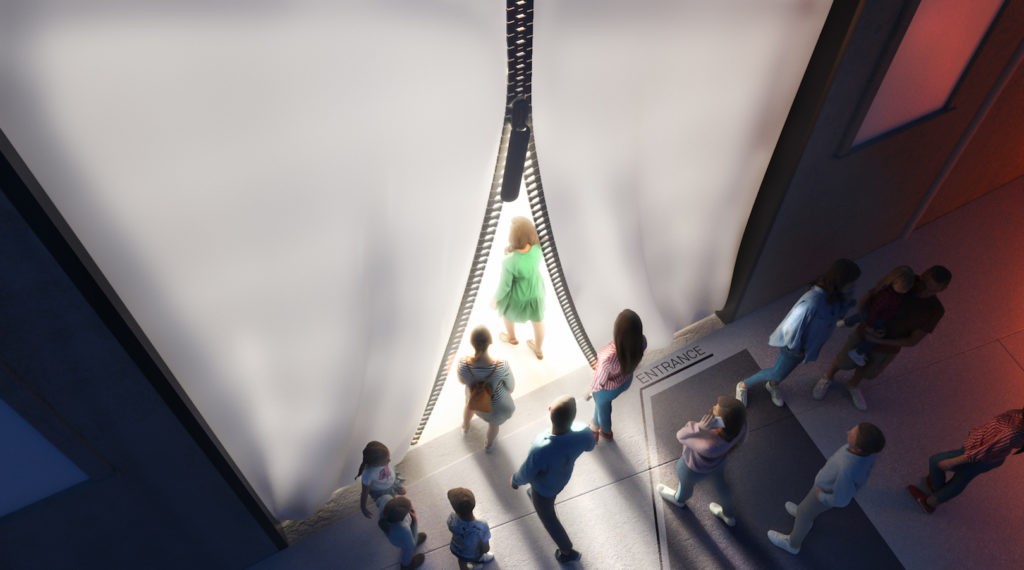
“We are delighted to work with MAE, a company whose history and know-how pioneered the transition from the original use of acrylic fiber in clothing to today’s use of carbon fiber in industries as varied as aerospace and automotive,” says Carlo Ratti, founding partner at CRA and a professor at the Massachusetts Institute of Technology (MIT).
In the first section of the museum, visitors encounter a robotic archive warehouse, lit with dazzling white light and filled with MAE’s historical documents. A series of mechanical arms move along the walls to extract photos, technical dossiers, and campaigns from the brand’s 50-year history, and bring these items to a raised central platform, where visitors can sit and browse through them. After that, visitors go through a long corridor where they can observe the process by which acrylic fibre is transformed into carbon fibre. This is followed by the second section of the museum dedicated to the use of fibre in contemporary industry. Within a black room enriched by an immersive installation, a set of interactive artifacts explores the experimental applications of carbon fibre and shows the most innovative prototypes made with it by car-making and aerospace companies.

The MAE Museum is located at MAE’s Italian headquarters at a one-hour drive from Milan, catering to different audiences including the general public, schools and chemistry and engineering specialists. In early July 2021, MAE announced a collaboration with Leonardo, one of the world’s largest defense contractors, to build a 17-million-euro pilot plant at this same location, which will produce innovative materials for use in the fields of aerospace, defense, and security.
The MAE Museum project builds on recent CRA research in both the design of cultural spaces and the concept of circularity in architecture. The Italian Pavilion at Expo Dubai 2020, designed by CRA and Italo Rota along with F&M Ingegneria and Matteo Gatto, focuses specifically on the use of experimental construction materials, and will open in early October 2021. CRA also recently completed the construction of the MEET Digital Arts Center in Milan and curated the “Eyes of the City” exhibition at the eighth Bi-City Biennale of Urbanism and Architecture in Shenzhen, China.
Project credits:
Creative lead and museum curatorship: Italo Rota
CRA team: Carlo Ratti, Andrea Cassi (Partner in Charge), Chiara Morandini (Project Manager), Iratxe de Dios
Italo Rota Building Office: Italo Rota, Francesca Grassi
Renderings by CRA graphic team: Gary di Silvio, Pasquale Milieri, Gianluca Zimbardi
You might also like:

